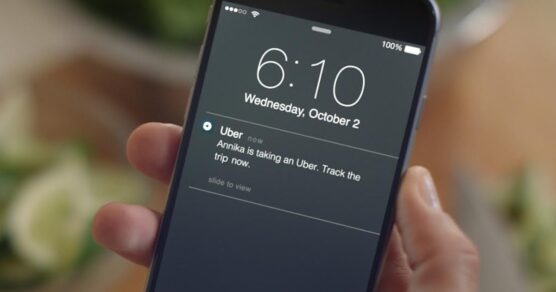By Edvard Pettersson
(CN) — The California Supreme Court on Thursday rebuffed a union-backed challenge to the voter-approved law that exempts app-based drivers working for companies such as Uber, Lyft and DoorDash from being classified as employees rather than independent contractors under the state’s labor code.
The court in an unanimous decision said Proposition 22, which passed with 59% of the vote in November 2020 and has since been encoded, doesn’t conflict with a provision of the state’s constitution from 1918 that purports to give the Legislature plenary power “unlimited by any provision of this Constitution” over workers’ compensation law.
As such, the court upheld a split decision by a state appellate court two years ago, which in interpreting the meaning of that provision, article XIV, section 4, said voters and the Legislature “jointly and severally have authority to create a workers’ compensation system.”
“We agree with the Court of Appeal that it seems ‘most improbable’ that the voters in 1918 — seven years after they ‘approved a far-reaching measure incorporating a broad initiative power as part of the California Constitution’ — would have intended, ‘without any direct or explicit statement to this effect, to limit the use of the initiative power by virtue of the language’ in article XIV, section 4,” Associate Justice Goodwin Liu said.
The opinion relied in great part on a previous case where the court analyzed nearly identical language in the state’s constitution that appeared to give the Legislature unlimited power with respect to the authority and expansion of the Public Utilities Commission at the exclusion of ballot initiatives.
In that decision, as cited by Liu, the court observed that the 1911 amendment to the California Constitution “to provide for the initiative and referendum signifies one of the outstanding achievements of the progressive movement of the early 1900’s.”
Even the plaintiffs admit, Liu said, that the meaning of “unlimited” can’t mean that the Legislative can disregard any and all constitutional bounds on the workers’ compensation laws it enacts.
At a hearing in May, Associate Justice Joshua Groban questioned the union’s interpretation of the “unlimited” power in the 1918 constitutional amendment insofar as it implied that voters gave lawmakers unrestricted power to pass any law when it came to workers’ compensation, even otherwise unconstitutional ones such as limiting workers’ comp to men only, the justice observed.
“The clause requires interpretation,” Liu said, “and without a specific indication that the 1918 voters who enacted the clause meant to limit the initiative power, it is ‘our judicial policy to apply a liberal construction to this power wherever it is
challenged in order that the right be not improperly annulled.’”
A group of Uber and Lyft drivers backed by the Service Employees International Union initially prevailed in their challenge to enactment of the ballot initiative, which had been funded by the gig economy juggernauts, when Alameda County Superior Court Judge Frank Roesch agreed with them in August 2021 that the entirety of Proposition 22 was unenforceable.
That decision was reversed on appeal, prompting the plaintiffs to ask the California Supreme Court to take up the case.
“We’re disappointed in today’s ruling,” said Tia Orr, executive director of Service Employees International Union California. “Still, we are hopeful that an earlier ruling which validated the state legislature’s authority to pass laws enabling rideshare drivers to join together in a union gives workers a path to collectively bargain for better pay, benefits and protections.”
Protect App Based Drivers + Services, the industry group that defended Proposition 22 along with the California attorney general, called the decision an overwhelming victory for voters’ rights and the integrity of California’s initiative system.
“This ruling is not just a win for the nearly 1.4 million drivers who rely on the flexibility of app-based work to make ends meet, but for millions of consumers and thousands of businesses who rely on app-based services across the state” said Molly Weedn, a spokesperson for the organization. “The courts have spoken, and this issue can finally be put to rest.”
Like this:
Like Loading...
Related





 Tweet This
Tweet This Facebook
Facebook Digg This
Digg This Bookmark
Bookmark Stumble
Stumble RSS
RSS


























REAL NAMES ONLY: All posters must use their real individual or business name. This applies equally to Twitter account holders who use a nickname.
0 Comments
You can be the first one to leave a comment.